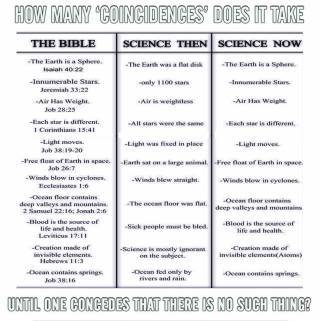Dewayne Bryant's Blog, page 14
April 25, 2016
The Selfishness of Transgenderism
 The transgender debate is nothing if not tumultuous. Target recently stated that anyone identifying as a transgender individual was welcome to use whatever restroom he or she wished. This immediately sparked outrage from parents of young children, especially mothers with young daughters. Statistics indicate that their fears are well founded. Most sexual predators are male, and 82% of juvenile victims are female (on the other hand, 28% of men who have experienced rape were 10 years old or younger when first victimized).
The transgender debate is nothing if not tumultuous. Target recently stated that anyone identifying as a transgender individual was welcome to use whatever restroom he or she wished. This immediately sparked outrage from parents of young children, especially mothers with young daughters. Statistics indicate that their fears are well founded. Most sexual predators are male, and 82% of juvenile victims are female (on the other hand, 28% of men who have experienced rape were 10 years old or younger when first victimized).
The transgender discussion is far more complex than its typical billing as a struggle between love and hate. There are some individuals who may be genuinely confused, which I fully accept. As a student of psychology with family members who suffer from a range of mood disorders, I understand that the human mind is an incredibly complex machine – and sometimes that machine has glitches and malfunctions. But I also know that behaviors are not merely programmed; they can be learned and cultivated.
When I see some of the stories of transgender individuals, I am struck by their obvious self-centeredness. TheTransgenderProject.com website features the story of a 52-year-old man who transitioned to being a 6-year-old girl (the story may also be found at DailyMail.com). Toronto resident Stephonknee Wolscht (pronounced like “Stephanie”) cheerfully tells the story of his “fresh start” in life. Leaving behind a wife and seven children, he received both positive and negative responses to his decision. He highlights some of the positive experiences, such as his acceptance by a goatee-wearing, Harley-riding biker who wanted to wear one of his dresses and kiss him, and of adoptive parents who lovingly supported his choices and allowed him to play with their adolescent grandchildren. He included a sprinkling of other details, such as his occupation as a snow plow driver.
We have become a very selfish society. Part of this is due to the influence of postmodernism. It is inherently self-centered, believing that what a person believes shapes reality not only for that person, but for anyone else perceiving or interacting with the person. This is especially true for transgenderism, in which a person’s feelings dictate reality. For example: “Although I am a man by birth, I feel like a woman, so I should be permitted to use women’s restrooms. You are the hateful one if you don’t accept that.” In other words, “My choices and beliefs immediately take precedence over yours for no defensible reason other than personal preference.” Keeping that in mind, I’d like to consider the following points:
What about the “fresh start” for Stephonknee’s wife and children? His departure represented the loss of a father. He left behind a huge void. Stephonknee may feel liberated, but his personal satisfaction has come only because he has reneged on his marital promise and abandoned his wife and kids.
If he identifies as a six-year-old girl, then his story about having a biker wanting to kiss him should be reported to the authorities. The biker should be arrested for child molestation.
His adoptive father should be picked up by the authorities for questioning. Stephonknee reported to one journalist that his adoptive father performed a homosexual act on him. Shouldn’t the father be arrested for child molestation also?
As a self-identified minor, he should immediately surrender his driver’s license. Only individuals 16 years of age are allowed to have one by law.
Stephonknee should quit his job, as his employment is a violation of child labor laws.
He should also close any checking or savings accounts he may have, as children can’t be the primary account holder for those, either.
His adoptive parents should be investigated immediately by Child Protective Services. Are they sending Stephonknee to kindergarten? Why are they allowing adults to kiss him? And why are they allowing him to work? Why do they let him drive a car and drink coffee?
These questions are absurd, of course. But they are absurd only because we all instinctively realize that grown men can’t magically turn into little girls. We understand that he is an adult male, and this child persona is simply his creation. It is a fantasy, a flight from reality for selfish reasons. I believe this is clear when he says, “I can’t deny I was married. I can’t deny I have children, but I’ve moved forward now and I’ve gone back to being a child. I don’t want to be an adult right now.”
This sad story has at least nine victims. One abandoned wife, seven fatherless children, and a very confused man who has been duped by the greatest deceiver of all.
Image courtesy of David Castillo Dominici / FreeDigitalPhotos.net


March 22, 2016
How Long Do You Want to Live?
 The Stanford Center on Longevity recently surveyed more than 2300 people and asked them this question. 77% said that they wanted to live to be 100. That a majority of people would want to live to a ripe old age isn’t surprising. What did surprise the researchers is how little those surveyed had done to prepare to live this long. This included both health and financial concerns. The survey showed that two-thirds of those surveyed were unhappy with their weight. Many people responded that if they retired at age 65, they didn’t have the financial means to support themselves for another thirty-five years. Over three-fourths of the respondents said they wanted to live to be 100, but only 42% said they were making an effort to get there.
The Stanford Center on Longevity recently surveyed more than 2300 people and asked them this question. 77% said that they wanted to live to be 100. That a majority of people would want to live to a ripe old age isn’t surprising. What did surprise the researchers is how little those surveyed had done to prepare to live this long. This included both health and financial concerns. The survey showed that two-thirds of those surveyed were unhappy with their weight. Many people responded that if they retired at age 65, they didn’t have the financial means to support themselves for another thirty-five years. Over three-fourths of the respondents said they wanted to live to be 100, but only 42% said they were making an effort to get there.
Why is it that we want to live a long life, but haven’t prepared for it?
It could be that death isn’t real for many of us. We don’t have a lot of experience with it, and therefore tend to underestimate it. When I was in college, some of my friends and I were absolutely convinced that we wouldn’t live very long. I couldn’t see myself living any longer than age 35. One of my best friends was sure that he wasn’t going to make it past 28. And we didn’t do anything reckless. We didn’t drink, smoke, drive fast, or participate in any self-destructive behaviors.
I remember years ago when I heard my father say that he would like to “kick out” at about age 65. He worked in the elevator trade and owned a small elevator company. It’s tough work. I think he felt that if he couldn’t work anymore, he would rather just ride off into the sunset. He doesn’t quite feel this way anymore, primarily because he discovered something called “retirement.”
In times past, there were no such things as retirement homes and health care facilities. Families took care of aging members in their final years. They saw death and knew it well. It was included in children’s rhymes. In the New England Primer, used to help children in the 1700s learn to read, we see passages like, “As runs the Glass, Mans Life doth pass” and “Xerxes the great did die, and so must you & I.”
We often prepare for many different eventualities in life, except for the most important one of all: its end.
In John 11, Lazarus becomes ill. Jesus hears of Lazarus illness but arrives after he has already died. Mary and Martha are grief-stricken, to be sure, and Martha says to Jesus, “Lord, if you had been here, my brother would not have died. But even now I know that whatever you ask from God, God will give you.” Jesus assures her, “Your brother will rise again.” Reflecting the general Jewish belief in a general resurrection of the dead in the future, Martha responds, “I know that he will rise again in the resurrection on the last day.” With confidence and assurance, Jesus says to her, “I am the resurrection and the life. Whoever believes in me, though he die, yet shall he live, and everyone who lives and believes in me shall never die.
We know that the story ends with Lazarus rising from the grave. Jesus’ story in the Gospels ends the same way. Will yours? Will our story end with us leaving an empty tomb behind? If we are prepared, it will. If Jesus returned tonight, and we were summoned to stand before him, would he tell us, “Well done, my good and faithful servant”? Or would he say, “Depart from me; I never knew you”?
Image courtesy of stockimages / FreeDigitalPhotos.net


November 17, 2015
The Bible, the Qur’an, and Violence
 With the recent attacks in Paris and a similar catastrophe in Germany thwarted just days later, some have been asking, “What is the difference between the Bible and the Qur’an? Both contain calls to violence, don’t they?” Both do indeed have teachings about violence, but there is a significant difference between the two.
With the recent attacks in Paris and a similar catastrophe in Germany thwarted just days later, some have been asking, “What is the difference between the Bible and the Qur’an? Both contain calls to violence, don’t they?” Both do indeed have teachings about violence, but there is a significant difference between the two.
Muslims consider the Qur’an to be the eternal word of Allah. That is, it existed in its entirety from eternity past before it was revealed through the prophet Muhammad. The text, as well as other sayings found in the Hadith, indicate that the Muslim must be prepared to commit acts of violence against non-Muslims. Many Muslims around the world practice Islam peacefully, and I have had the privilege of meeting some of them. Still, we cannot escape the fact that those who adhere faithfully to the Qur’an are charged to establish Islam as a universal religion, using violence if necessary. Comments from high-profile imams, especially those in Europe where numbers favor Muslims, make this point abundantly clear.
What of the Old Testament? Does it not also include episodes of violence? Yes it does – but it is in the form of a report, not a command to go and do likewise. This is the essential difference between the Bible and the Qur’an: the former preaches an ethic of love, the latter pushes an ethic of submission and control.
Christians have no biblical basis to commit acts of violence in Christ’s name; instead, we wage a spiritual war (2 Cor. 10:4; Eph. 6:10-20). Jesus said to go out and make disciples of all nations (Matt. 28:18-20), but there is no hint that Christians are to do so using coercion or violence. Sadly, the same cannot be said of Islam. While not every Muslim will agree that worldwide control is their ultimate goal, it is written into their sacred texts (Sura 9:33; 48:28; 61:4-9, 13).
The attacks in Paris, and others around the world, demand our attention. It is a reminder that our task is not finished. We do not raise the sword, but rather lift our voices in prayer for those who have been duped by a false religion. We must be prepared to show that Jesus came to this earth to die for humanity’s sins and that his life and mission are historical realities. We must be willing to render aid to our worldwide neighbors who have been displaced by terrorists. Above all else, we should be ever-vigilant, looking for opportunities to show others why a risen Savior is so much better than a dead prophet.
Image courtesy of Sira Aeamwong / FreeDigitalPhotos.net


October 31, 2015
Roman Religion
 This past week on “Light from the Past,” our podcast was dedicated to the subject of Roman religion. What we may not realize is that church-goers may be worshipping like Roman pagans instead of Christians. How? There are a couple of different things we might do:
This past week on “Light from the Past,” our podcast was dedicated to the subject of Roman religion. What we may not realize is that church-goers may be worshipping like Roman pagans instead of Christians. How? There are a couple of different things we might do:
By allowing our relationship to devolve into mere ritual. When we pray, are we really communicating with God, or are we simply pronouncing a formula? When we read the Bible, are we really engaged or it it just another item on our to-do list? How involved are we mentally, spiritually, and emotionally? We should do nothing with the hand that does not involve the heart.
By entering into a contractual arrangement with God. How often do we say, “Lord, if you’ll just do X, then I’ll do Y.” Or, if we’re stuck in an unpleasant situation, “If you just get me out of this, I’ll start doing this/stop doing that.” If we do this, then we are celebrating God for what he does rather than for who he is – and that makes our relationship platonic. The Romans did not really have relationships with their gods. They had contracts. Sometimes, so do we.
If you’ve ever done either of these things, then you have been a very, very good Roman. But a Christian? Well, that’s a different story. We might be surprised at how often we imitate Caesar rather than Christ.
If you’d like to learn more about Roman religion, please see the latest podcast, Roman Religion, hosted by my friends over at The Light Network.


October 27, 2015
Some Videos You Shouldn’t Miss
 Looking for free, high-quality Bible studies featuring photos and video shot on location in the lands of the Bible? Look no further.
Looking for free, high-quality Bible studies featuring photos and video shot on location in the lands of the Bible? Look no further.
This past March I had the privilege of traveling to Israel to film a number of segments for a video series entitled “Bible Land Passages.” It will consist of 30+ episodes covering different sites mentioned in the Bible and the events that took place there. These programs will be filled with solid biblical teaching and feature photos and footage shot on location that will not merely bring the Bible to life; they will bring viewers to the lands of the Bible.
Please check out this exciting new resource available from World Video Bible School. You can see the first three videos, as well as some behind-the-scenes photos. The available episodes are: Jerusalem: An Unforgettable City, the Ministry of Jesus in Northern Israel, and Dan: City of Unfaithfulness. I know you will be encouraged and enlightened.


October 20, 2015
A Tale of Two Kings
While exploring Herod’s fortress at Masada, visitors are immediately struck by its extravagance and grandeur. It housed two palaces and provided a tremendous view of the Dead Sea. It featured every luxury for which a person in the first century could have hoped, including heated baths. It was a home fit for a king.
Herod was a cruel and unjust ruler, and seems to have suffered from paranoia. This would lead to the deaths of several family members, including three sons and his beloved wife Mariamne. He was a friend to emperor Augustus, having helped save the Olympic Games, among other things. Yet even Augustus is said to have once remarked that he would have rather been Herod’s pig than his son. Observing the Mosaic law, Herod would have never eaten pork. His family did not enjoy the same measure of protection.
During the final years of Herod’s life, another king was born – one who would come to be known as the King of Kings. He was different from Herod in almost every way. We might contrast these two powerful men:
Herod enjoyed splendid accommodations; Jesus remarked that he had nowhere to lay his head.
Herod’s rule was characterized by brutality and cruelty; Jesus is known for love and compassion.
Herod desperately clung to his throne and his crown; Christ emptied himself to come to earth and serve.
Herod’s rule was temporal; Christ’s rule is eternal.

Herod’s palace was equipped with heated baths. Although rich and poor alike could enjoy them, only the wealthy enjoyed private facilities.
Herod’s kingdom would eventually go the way of all nations on earth. The Romans ravaged Judea in the First Jewish-Roman War of AD 66-73. Jerusalem fell in AD 70. The temple was destroyed and its treasures looted. The Romans took Masada about three years later in a siege that lasted anywhere from two to six months.
Herod’s legacy is to be remembered as a despot who schemed and murdered to maintain his own power. Jesus could hardly be more different, giving up his throne in heaven to become a servant.
Jesus and Herod represent the only two ways of living on earth. Either we embrace God’s Son and enjoy eternal life in his kingdom, or we side with the powers on earth and participate in their eventual doom. A ruined and abandoned palace, or an empty tomb – the choice is ours.


October 13, 2015
Scientific Foreknowledge – Not (Quite) All It’s Cracked Up to Be
 The scientific foreknowledge of the Bible is a tricky subject. Many well-meaning believers, earnestly seeking to defend the Christian faith, latch onto bad evidence, not realizing how laughable their arguments appear to non-Christians. The following list was taken from a post on Facebook that illustrates my frustration with this frequently-used defense of Scripture.
The scientific foreknowledge of the Bible is a tricky subject. Many well-meaning believers, earnestly seeking to defend the Christian faith, latch onto bad evidence, not realizing how laughable their arguments appear to non-Christians. The following list was taken from a post on Facebook that illustrates my frustration with this frequently-used defense of Scripture.
The Earth is a sphere (Isa. 40:22). Not according to the prophet Isaiah, or any other biblical passage for that matter. The Hebrew term used in this passage is khug, meaning “circle” or “horizon,” not “sphere.” There is evidence to suggest that the Greeks knew the earth was round by the 5th century BC. By the time Christopher Columbus sailed the ocean blue, everyone had known the earth was round for two millennia. This does not mean that the Bible teaches the earth is flat – far from it. Critics who claim this apparently don’t understand the biblical authors’ use of perspective and phenomenological language. Unfortunately, this is often the case when the Bible talks about the “corners” of the earth (Ezek. 7:2; Rev. 7:1); critics don’t seem to realize that the Bible is employing a designation that had been in use for many centuries. Some of the earliest kings of Mesopotamia called themselves “King of the Four Corners of the Earth” (i.e., the whole world).
Innumerable stars (Jer. 33:22). If the stars really were “innumerable” (i.e., an infinite number), the entire universe would be nothing but stars. There wouldn’t be room for anything else. There is an actual number of stars, the number of which only God knows, of course. To describe a vast quantity of anything as innumerable happens quite a lot. This is simple observation. We also have to consider that God states that the descendants of Abraham and David will be just as innumerable (see also Jer. 33:22). Since that is not the case, then we must interpret this passage as hyperbolic.
Air has weight (Job 28:25). The actual term used in the passage is “wind” (ruah, meaning ‘breath,” “wind,” or “spirit”), not “air.” The main problem with this verse is a common one for proponents of scientific foreknowledge – it begins by taking liberty with the text. Others in this list do the same. But the term “weight” should perhaps be understood as “force” (Heb. mishqal), likely a reference to the force exerted on people and objects when the wind blows.
Each star is different (1 Cor. 15:41). What the apostle Paul may mean here is readily observable by any person: stars have different brightnesses.
Light moves (Job 38:19-20). This difficult passage doesn’t teach that light moves, unless darkness “moves” also. This is a puzzling interpretation, since it seems that the verse also says that darkness and light have “dwelling places,” indicating that there are, apparently, times when light doesn’t move (which is not possible). Some commentators suggest that this is a way of referring to the afterlife. Not a great interpretation in my opinion, but ancient poetry can be exceedingly difficult to translate and interpret.
Free float of Earth in space (Job 26:7). The earth does not float free in space. It is pulled by the gravity of the sun and affected by the gravitational fields of other heavenly bodies. If the earth was not bound to the sun by gravity, it would be a nomad planet and would be completely unable to support life.
Winds blow in cyclones (Ecc. 1:6). The term “cyclone” does not appear in this verse. It simply talks about the movement of the wind.
Ocean floor contains deep valleys and mountains (2 Sam. 22:16; Jon. 2:6). The first text mentions the “channels” of the sea – in other words, the “channel in which the sea lies.” There is no reference here to underwater valleys. The second passage is when Jonah sinks down in the “ocean.” The prophet is thrown overboard in the Mediterranean Sea, which doesn’t have any mountains in it.
Blood is the source of life and health (Lev. 17:11). Anyone who has ever seen an animal bleed to death – including anyone in the ancient world who ate meat or offered sacrifices – would already know this. This statement comes after a section on sacrifices, likely meant to indicate the importance of blood for an important reason: it signifies the penalty for sin, and so it not to be treated like anything that was common. Noah and his sons had already been commanded not to eat blood (Gen. 9:4).
Creation made of invisible elements (Heb. 11:3). If creation was made of “invisible elements” then everything would be invisible. It may be that what it intended here by our careless apologist is “invisible to the naked eye,” i.e., atoms. However, the Greek philosopher Democritus had already suggested that the world was made of atoms five centuries before the book of Hebrews was written. This passage actually supports the concept of creation ex nihilo. The writer of Hebrews is stating that God doesn’t create using pre-existing material, unlike the pagan gods (a belief that was common in ancient mythology).
Ocean contains springs (Job 38:16). It is not clear to what this passage refers. It cannot refer to ocean vents, as some might be tempted to claim. But we have to ask an important question: why would God mention this, if Job could have known nothing about it anyway?
Looking at the list above, these are popular and atrocious arguments used to defend the Christian faith. Poetic texts are some of the most enigmatic in all Scripture, being very difficult to translate and interpret. Consequently, it makes a ripe target for proof-texting by those who cannot interpret the material properly. Not only have a few Christians misinterpreted these passages, they compound their folly by misusing them in the attempt to make claims that the biblical writers never intended.
Arguments like the ones in the list above are not coincidences; they are embarrassments often mocked by non-Christians. Christ is much better served by the rigorous use of our minds than by using cheap apologetics parlor tricks.
For an additional resource which explains some of the above in further detail and offers some positive examples of scientific foreknowledge in the Bible, please see my podcast Light from the Past , hosted on The Light Network.


October 8, 2015
Death by Conformity
 The Vietnam War was a difficult time in our country’s history. In a sense, it was the first war that America lost. But we weren’t the only ones who endured hardships as a result of the outcome of the war. The Communist government of Vietnam imprisoned over 1 million people in reeducation camps without any formal charges being filed, and with no trial. Those who were incarcerated were indoctrinated, but many of them were simply detained because they had espoused ideas contrary to those of the state.
The Vietnam War was a difficult time in our country’s history. In a sense, it was the first war that America lost. But we weren’t the only ones who endured hardships as a result of the outcome of the war. The Communist government of Vietnam imprisoned over 1 million people in reeducation camps without any formal charges being filed, and with no trial. Those who were incarcerated were indoctrinated, but many of them were simply detained because they had espoused ideas contrary to those of the state.
We might say that something similar happened roughly 2600 years ago. Daniel and his three friends Shadrach, Meshach, and Abed-nego were captured by the Babylonian army and taken to the beautiful and brutal city of Babylon. Here the four friends underwent a reeducation process. They received a Babylonian education, and were given Babylonian names. In every respect they were expected to adopt the culture of their new home. Daniel and his friends were under incredible pressure to renounce their belief in the Lord and replace it with loyalty to other gods.
As we know from the book of Daniel, they did not do this, even under the threat of execution. Daniel’s friends refused to bow to a statue that King Nebuchadnezzar constructed. Daniel refused to stop praying to God in spite of his political enemies’ best efforts. Respectful of their kings but defiant of sin, the four risked death rather than betray their God.
But what about us? What about our society today? We face some of the same pressures, but they aren’t quite as bold or as hostile as the ones Daniel’s friends faced. In our society, we are pressured to privatize our faith so that we don’t offend anyone. This might take the form of relaxing our stances on moral issues like abortion or same-sex marriage. It might mean adjusting our interpretation of biblical passages in light of majority opinions, such as the creation story of Genesis 1-2. It could be adopting a pluralistic view of religion, claiming God must be obligated to save members of all sects, denominations, and other religions.
In short, the challenge we face is much more insidious. We don’t faced the threat of persecution or death. No one will execute us for being a Christian. We won’t be exiled to a forced labor camp. But we do face pressures. They often come from the media, from our neighbors, possibly even from friends and family. We will be pressured to make little concessions here and there. If we do make them, our Christianity will die a death by degrees until it becomes something other than Christian. And we must never forget that a faith that is not Christian is a faith that cannot save.
Image courtesy of nipitphand / FreeDigitalPhotos.net


June 12, 2015
A Jesus Who Never Lived
 I published an e-book a few months ago titled, Rediscovering Jesus: Finding God’s Son Among Counterfeit Christs. In one of the chapters I discuss the “Jesuses who never lived.” Each one of these portraits are fictive creations that look something like Jesus, but serve far more often as his substitutes. Each one is fabricated according to the wants, desires, and felt needs of the individual. Here I discuss one such incarnation called, “Political Jesus.”
I published an e-book a few months ago titled, Rediscovering Jesus: Finding God’s Son Among Counterfeit Christs. In one of the chapters I discuss the “Jesuses who never lived.” Each one of these portraits are fictive creations that look something like Jesus, but serve far more often as his substitutes. Each one is fabricated according to the wants, desires, and felt needs of the individual. Here I discuss one such incarnation called, “Political Jesus.”
Careless and uncritical believers hijack the authority of Jesus in order to support any number of political viewpoints. The problem with using His teachings as evidence is that people often do not look to make a biblical case for the causes they support. Instead, they take hold of something in His teaching that lends support to their viewpoint. Sadly, this means that they often take things out of context. In each of the following cases, the figure of Jesus is recognizable in much the same way as a person’s reflection in a funhouse mirror: identifiable, but distorted.
Right-Wing Jesus campaigns against tax increases and believes in rendering unto Caesar what is Caesar’s only as long as Caesar is small. If the theory of evolution must be taught in schools, legislators should ensure that creationism and intelligent design be given equal time. He vigorously opposes judges who legislate from the bench. He also likes guns and thinks that anyone who doesn’t must be un-American—or unspiritual, because the two tend to look the same anyway. He wants politicians to put prayer and the Bible back in schools, and derides anyone who doesn’t properly understand the separation of church and state.
Left-Wing Jesus advocates going green, saving trees, and reducing humanity’s carbon footprint. He champions the cause of the poor, the downtrodden, and other victims of a shadowy entity known as “the system.” He argues that the solution for income inequality is to make sure the rich pay their fair share, which usually means that millionaires should give their wealth to the poor because they probably did something unfair or illegal to get it in the first place. This Jesus drives a hybrid car, drinks fair-trade coffee, and wages media campaigns against human rights abuses both foreign and domestic.
Then there’s Anarchist Jesus. He rebels against the status quo and blames things on “the system”—which isn’t quite the same system as the one Left-Wing Jesus talks about. He stockpiles guns, but not for the same reason that Right-Wing Jesus does. He takes every available opportunity to stick it to “the man,” who is usually represented by anyone wearing a suit and/or carrying a badge of some type. He has lots of conspiracy theories, believes in being self-sufficient, and lives off the grid.
In any one of His incarnations, Political Jesus is merely a creation that results from the marriage of New Testament teachings with one’s own political ideology. This is as predictable as it is unfortunate. It seems to stem from the desire to use Jesus as an authoritative source without actually considering what He has to say about any particular matter at hand. That people do this is no surprise; one of the great faults of humanity is the unfortunate tendency for us to cherry-pick our sources that help us make the strongest possible case for our point of view. This flaw is extended to how we use the Bible in supporting causes and perspectives we hold dear.
The relationship of the Christian to his or her government is challenging. The apostle Paul is clear that Christians should be obedient to human governments because their authority is derived from God (Rom. 13:1-7; cf. 1 Pet. 2:17). At the same time, Scripture teaches that we must obey God rather than men (Acts 5:29). There are cases of civil disobedience in Scripture in times where believers had to choose whether to obey man or God (Ex. 1:17; 1 Sam. 14:45; 1 Ki. 18:1:3b-4). Regardless of our political viewpoints, however, it is clear that our loyalty must lie with God and His Word. This means respecting His authority enough not to simply use the Bible as a weapon to bludgeon someone else into accepting our viewpoint.
One criticism that non-Christians make about believers is that we are far too politically connected. This is a minefield for the church today. Some believe that Christians should be politically active – if we are salt and light, then why should we not use politics as one avenue to effect positive change in our society? Others argue that Christians should not be politically active at all – Jesus and his apostles changed the world through love, not by campaigning for public office. Others offer a middle position somewhere between the extremes. One thing we can say for certain, however, is that Jesus was concerned with telling others about his Father, and by affecting the lives of others through his relationships with them. And that’s a great place to start.


May 7, 2015
Spotting Counterfeits
 I had the privilege of taking a trip to Israel in March.��While walking around in Bethlehem, I ran across a Starbucks coffee shop. I wasn’t surprised to see one there, given the fact that American culture has found a foothold in virtually every country on earth. I’ve eaten at Pizza Hut in Port Said, Egypt; I’ve had Wendy’s at midnight in Athens, Greece; and I’ve enjoyed a McDonald’s Kiwiburger in Palmerston North, New Zealand. I figured that this��was another example of an American company that opened its stores abroad. I snapped a picture and walked on.
I had the privilege of taking a trip to Israel in March.��While walking around in Bethlehem, I ran across a Starbucks coffee shop. I wasn’t surprised to see one there, given the fact that American culture has found a foothold in virtually every country on earth. I’ve eaten at Pizza Hut in Port Said, Egypt; I’ve had Wendy’s at midnight in Athens, Greece; and I’ve enjoyed a McDonald’s Kiwiburger in Palmerston North, New Zealand. I figured that this��was another example of an American company that opened its stores abroad. I snapped a picture and walked on.
Then I turned and looked the store over a second time. Something wasn’t right. It didn’t look like a Starbucks. In America, branding is important. Oftentimes you can tell what a restaurant is going to be when it is still under construction by the shape of the building alone. “Well,” I figured, “maybe it’s because it’s a foreign store.”��I took a few steps, then looked back again. There was something odd about the signage. I checked the Starbucks app on my phone and noticed that the logo��was different. “Well, it’s a foreign store, so maybe they don’t have the resources to update��the logo��every time Starbucks makes a change.”
I then wondered aloud to my companions whether the store was authentic or not, adding that I doubted it. As I discovered later, my suspicions were correct. Starbucks closed all of its stores in Israel in 2003. The store was a counterfeit, looking just enough like the real thing to fool the undiscerning��passerby.��This is how counterfeits work. They are intended to look like the genuine article, and their��creators take great pains to make them look as authentic��as possible. It’s only the small details that give them away.
I cannot help but think of many��church fellowships��that have followed a similar trend. They look just enough like the church of the New Testament that many people equate the two. The undiscriminating church-goer may not notice the subtle discrepancies, and ��may become convinced that those differences don’t really matter. We might see one of the following characteristics:
Defective Theology. We have seen the rise of various preachers who offer a gospel much different than the one found in the New Testament (cf. Gal. 1:6). This may take the form of the prosperity gospel found in the preaching of figures like Joel Osteen, Creflo Dollar, and Kenneth Copeland. It might be the soft universalism of figures like Rob Bell. It could be the avoidance of difficult topics such as sin, judgment, and hell in much of contemporary left-leaning��preaching. But the apostle Paul did not shy away from��any aspect of the gospel message��(Acts 20:27; cf. Matt. 28:20). Sound doctrine is indispensable (cf. Titus 1:9). We have to remember that any other gospel not matching the New Testament precisely is a gospel that is, by definition, perverted.
A Distorted View of God’s Grace. This may be the view that God’s grace is designed��only for an elect few, as in Calvinism. A dangerous and wide-reaching distortion��is found in teaching��that redraws��the parameters of salvation.��This is often accomplished by making personal goodness or sincerity into��acceptable substitutes for a saving relationship with God through Christ. We might��state��it in two ways: “love for God is optimal; love for the good is acceptable,” and “obedience is a mark of those who are saved in Christ; sincerity is the mark of those saved outside of Christ.”��Jesus gravely warned about those whom he would turn away at the door of his kingdom, in spite of their deeds and, apparently, the misguided sincerity which had��produced them (Matt. 7:21-23).
Teaching Unbiblical��Traditions. The Pharisees often received stinging rebukes from Jesus, and for good reason. They followed��prescribed laws of their own making, putting their traditions��virtually on par with God’s commands. They weren’t the last to manufacture their own traditions. This has continued with the Roman Catholic Church, which puts tradition on the same level as Scripture. It has also continued to a limited extent with the Eastern��Orthodox Church, which appeals to apostolic tradition for various aspects of its theology. Paul warns Christians about accepting replacements for the biblical message (Col. 2:8; cf. Mark 7:8-9).
Counterfeits succeed because they look almost exactly like the original.��The New Testament warns us about them (Matt. 24:4-5), and there are many who have been duped (cf. Luke 6:46). The devil has spent a long time perfecting his craft. But as with all counterfeits, he can��never succeed in concealing the little mistakes that betray his handiwork.







